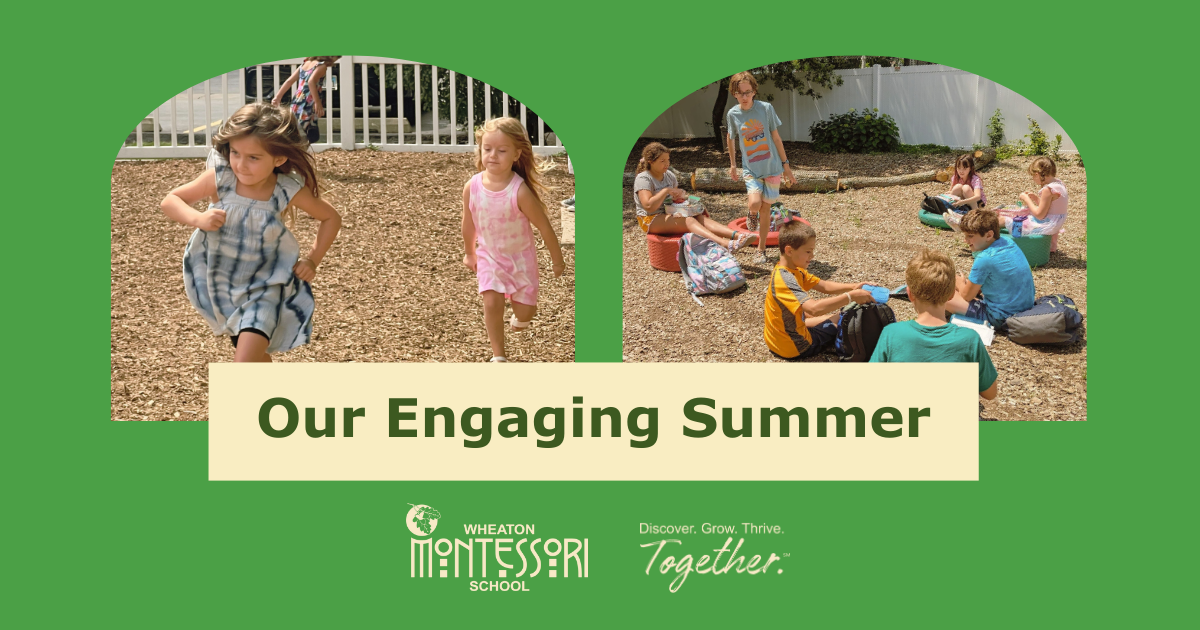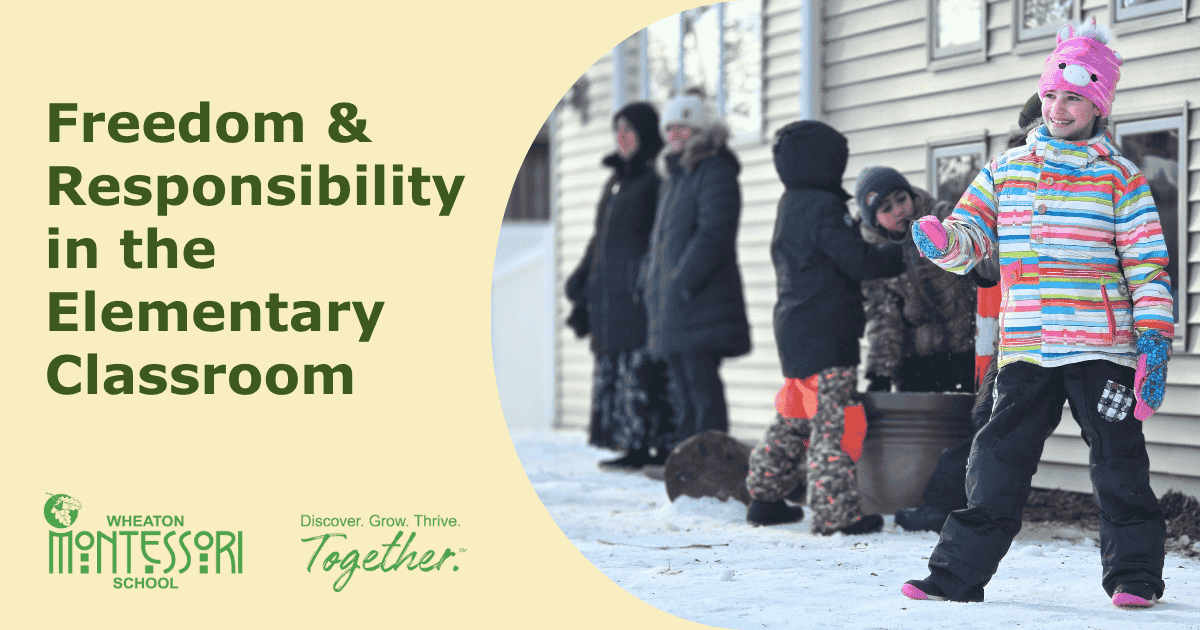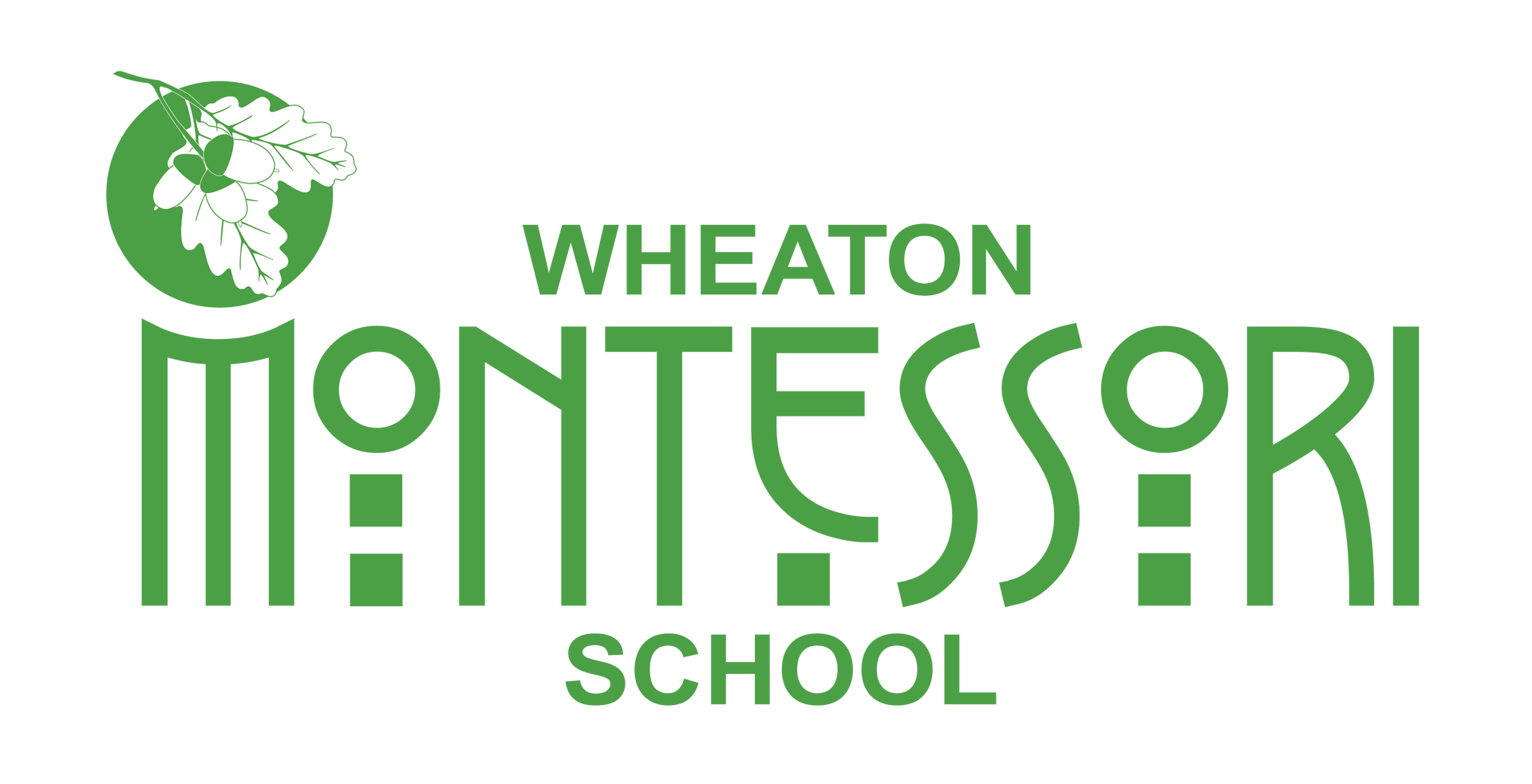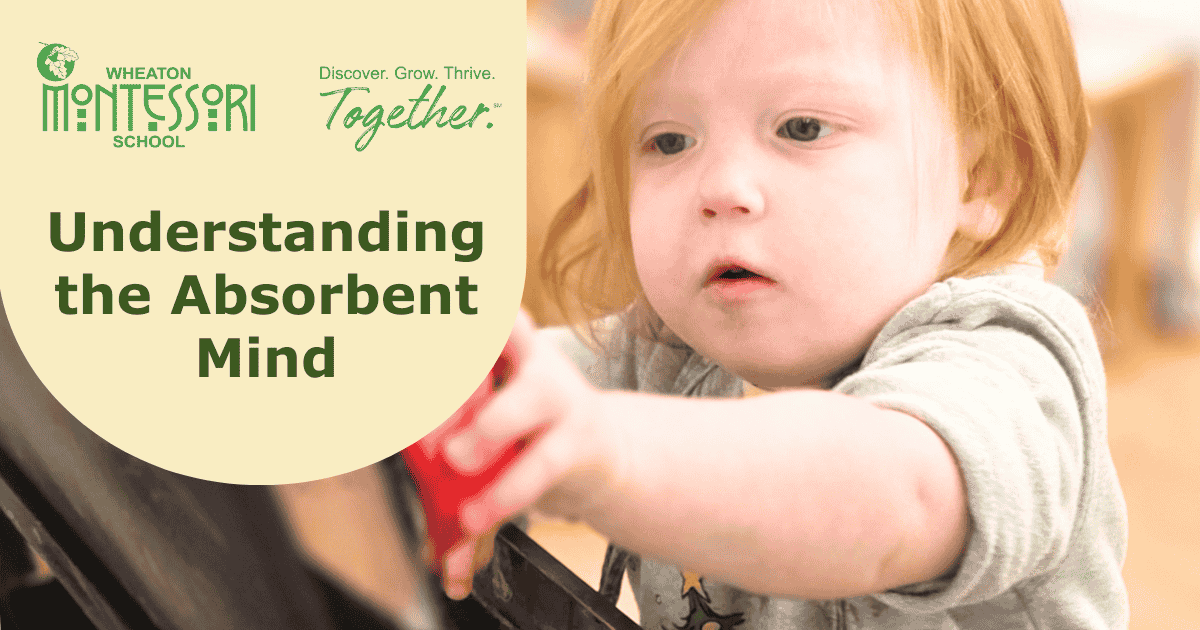
The summer months can sometimes feel like a long stretch, especially when we are trying to figure out how to keep our children engaged and entertained. We think about the big picture of what children need and make it easier to think about activities that will support natural development.
Wheaton Montessori School's Summer Camps are available for current Primary and Elementary students, as well as new preschool students enrolled for the 2025-2026 school year. These camps offer a variety of enriching experiences designed to spark curiosity, foster learning, and provide fun summertime activities. The programs aim to meet children's needs and support their natural development. All our summer camps are run by our highly qualified teachers from the regular school year, providing familiarity and comfort for campers. Continue reading to learn more and how to register for our summer camps.
What Do Our Children Need?
Dr. Maria Montessori first began working with children and approached this work with a scientific mindset. She observed the tendencies, needs, and behaviors of children the way a scientist might observe animals in the wild. In this way, Dr. Montessori was able to identify the inclinations young humans have toward particular behaviors or characteristics. Wheaton Montessori School summer camps are designed to meet the needs of children as Dr. Montessori has defined.
Wheaton Montessori School Summer Camps are designed for children to:
Explore
- Learn through new and continuing lessons and activities like during the regular school year
- Spend time in nature
- Discover through personalized lessons
- Create and continue social interactions
- Expand knowledge with field trips to e.g. a museum, park, or zoo for elementary students
Humans have an innate need to explore, a trait that has been vital since the early human need for survival. Young children continue this exploration, learning through their senses and movement as they grow.
Orient
- Engage in new experiences with familiar stable touchpoints
- Support and practice with new opportunities
- Adapt to summer play routines on the school’s campus
Our need to orient involves understanding our relationship with our surroundings, helping us feel secure. Young children especially need to orient themselves to routines, places, and people.
Order
- Continue with familiar routines, places, and people
- Maintain a schedule of learning and playing
- Play with friends and continue socializing in highly structured developmentally aligned environments
- Receive stability and comfort during the longer daylight hours of summer
Children need consistent reference points to navigate their world and can feel off balance when routines change.
Work
- Continue the sense of purpose and mental effort offered during the school year
- Enjoy their summertime as they continue to be driven by purpose and are challenged intellectually and physically
- Do work outdoors in the school backyard through fun outdoor extensions.
Our children want to contribute meaningfully, and this is best facilitated by involving them in age-appropriate tasks.
Self-perfection
- Focus on gross motor activities while playing in the school backyard
- Become more proficient in their language skills
- Practice social skills with their peers
- Repeat, practice, and perfect all their skills appropriate to their stage of development
Mastery comes from completing tasks, which often requires repetition and a pursuit of perfection. This drive for improvement is evident in children as they learn to walk and talk but exists for math and writing too. They refine their skills through practice and precision.
Summer is a wonderful time for children to engage in gross motor activities in outdoor spaces. Our students love our summer camps, where they can play games in our backyard and enjoy the splash pad. In addition to enjoying our backyard with their friends, elementary students have the chance to be active at local parks, splash pads, and museums.
Our summer camps offer fun learning opportunities with familiar teachers, fostering friendships, academics, and environments in which children develop naturally. Wheaton Montessori is dedicated to ensuring that summer is a time for play, growth, and exploration.
To find out more and sign up, send our office an email at discover@wheatonmontessori.org
Prospective families with toddlers and children under 4 are encouraged to sign up for a school tour to explore the advantages of our summer camps and Primary Program.
Our waitlist for kindergarten-9th grade for Fall 2025 is currently closed. Please check back in April to see if the waitlist is open then. Individual tours will only be offered for kindergarten through 9th grade if the waitlist is open. New student transfers to our elementary and adolescent programs must be from a Montessori school.


